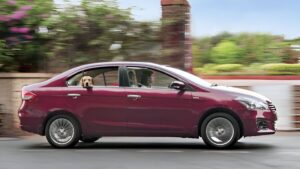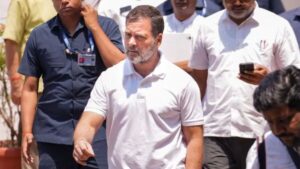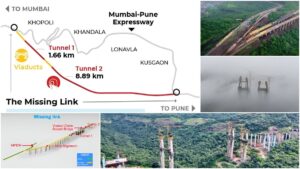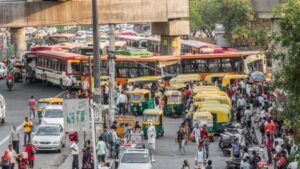Tesla is Now Officially Hiring in India, Openings in Pune and Mumbai, Signals Entry into India
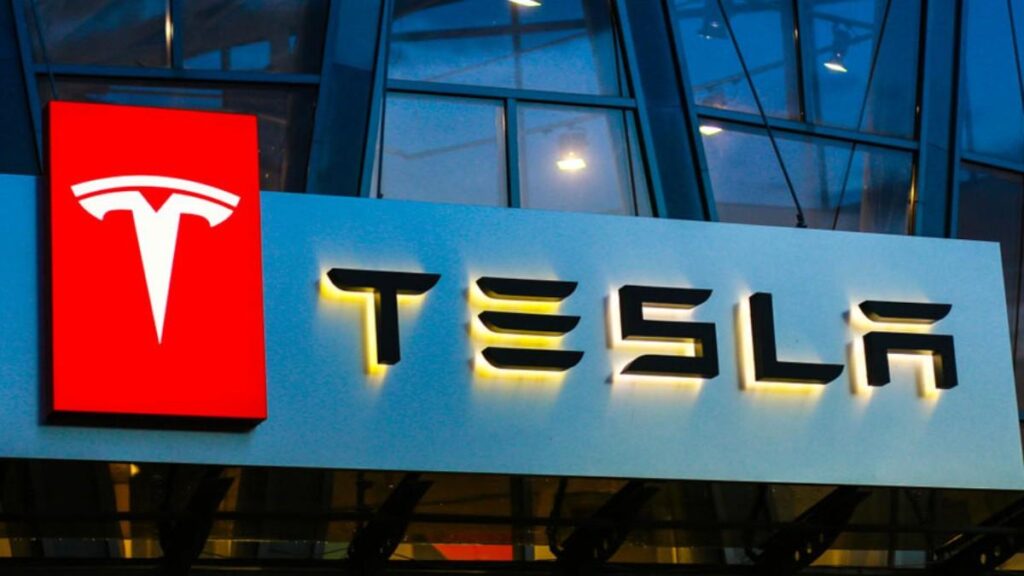
Tesla, the electric vehicle (EV) giant led by billionaire Elon Musk, has taken a significant step toward entering the Indian market by initiating its recruitment process in the country. The company has posted 14 job openings across Mumbai and Pune, marking a pivotal moment in its long-anticipated India expansion.
The job listings, shared on Tesla India’s website, include roles such as Service Advisor, Tesla Advisor, Service Technician, Business Operations Analyst, and Customer Support Specialist, among others. Of the 14 positions advertised, 13 are for Mumbai and 01 for Pune. This hiring spree follows Musk’s recent meeting with Indian Prime Minister Narendra Modi during the latter’s visit to the United States, where discussions reportedly centered on Tesla’s plans for India.
Overcoming Import Duty Hurdles
Tesla’s entry into India has been delayed for years, primarily due to the country’s high import duties on luxury vehicles. Previously, India imposed a 110% customs duty on EVs priced above $40,000, making it challenging for international manufacturers to compete. However, in a significant policy shift, the Indian government recently reduced the basic customs duty on such vehicles to 70%, easing the path for Tesla’s entry.
Additionally, in March 2024, India introduced a new policy that further lowers import duties for companies willing to invest at least $500 million in local manufacturing. This move aligns with Tesla’s long-standing demand for reduced import taxes before committing to large-scale investments in the country.
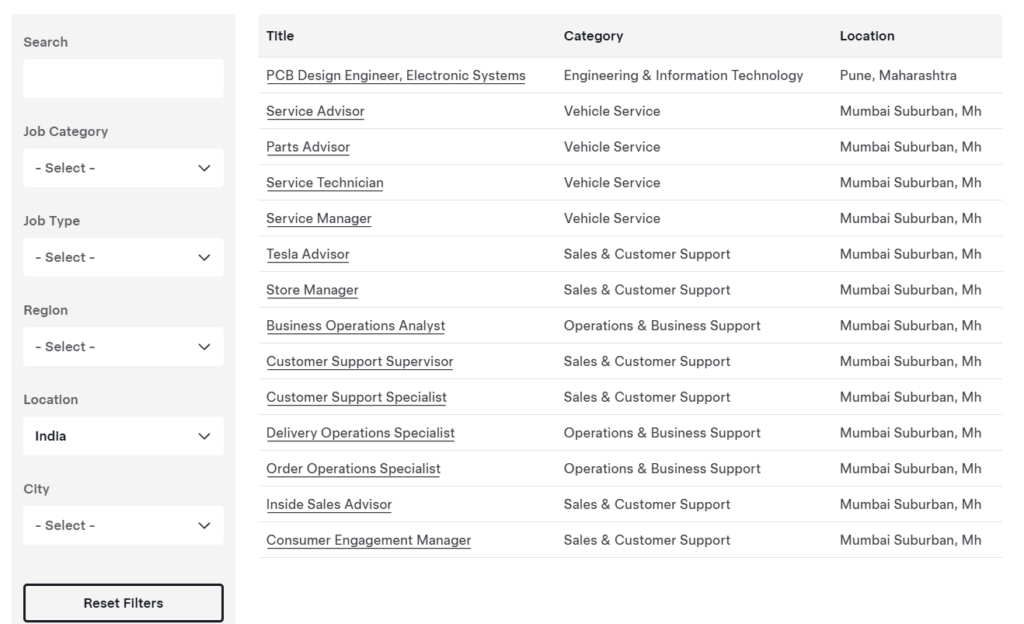
India’s EV Ambitions and Tesla’s Strategy
India’s EV market, though still in its infancy compared to global leaders like China, holds immense potential. In 2023, India recorded sales of approximately 100,000 electric vehicles, a stark contrast to China’s 11 million units sold in the same period. However, the Indian government’s push for cleaner energy and its goal of achieving net-zero emissions by 2070 have created a favorable environment for EV adoption.
Tesla’s hiring activity suggests the company is laying the groundwork for its operations in India, even though it has not yet confirmed when it will begin selling vehicles. Analysts speculate that Tesla may initially import cars to test the market before deciding on local manufacturing, depending on demand and government incentives.
A Broader Context: Business Meets Politics
Tesla’s move into India also comes amid broader trade discussions between India and the United States. Following the Modi-Musk meeting, US President Donald Trump highlighted ongoing talks to reduce trade imbalances and increase US military sales to India, including potential deals for F-35 fighter jets. This intersection of business and politics underscores the strategic importance of Tesla’s expansion into India, not just as a market opportunity but as part of a larger geopolitical narrative.
As Tesla begins its recruitment drive, the Indian EV market watches closely. With its global reputation for innovation and sustainability, Tesla’s entry could accelerate the adoption of electric vehicles in India, paving the way for a cleaner, greener future.



